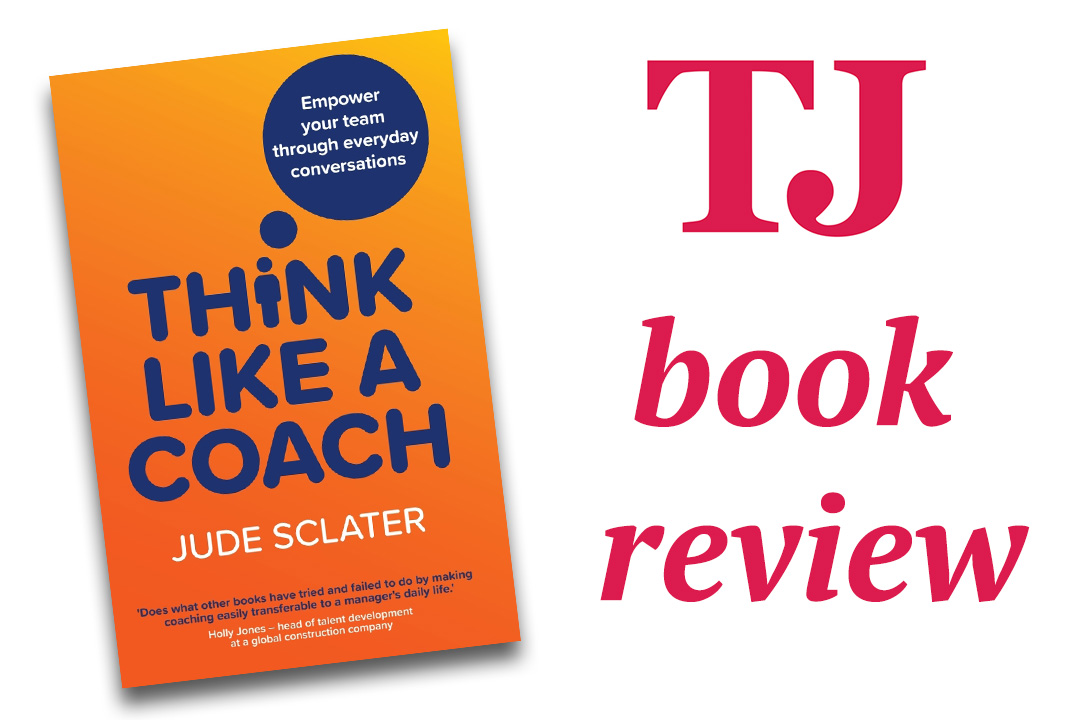Book: Think Like A Coach
Author: Jude Sclater
As an L&D practitioner, I am increasingly drawn to coaching – the methods, theories and advice. I truly believe this is a skill that benefits everyone. I am also passionate about helping first-time managers find their feet in an authentic way. So, when UK-based coach Jude Sclater reached out to review her very first book, this was like a match made in heaven for me!
She veers away from heavy academic language, instead sharing anecdotes and gently suggesting the reader has a go at asking coaching questions
At 170 pages Think Like a Coach is a relatively short book, but it packs a punch. Jude draws from both her corporate and coaching experience (she also shares her wisdom in a weekly newsletter, Think with Jude) to empower anyone who is now leading teams and wondering how to do so effectively. In this regard, the coaching approach is the real differentiator for me.
When people – especially when working outside of Development functions – think about coaching, they bring a myriad of images and assumptions to mind. Coaching is for executives and leaders only; it’s too soft; too opaque; not actionable enough, etc.
Yet, the coaching skill is a gamechanger for people managers: it is the art of asking a question and truly listening for the answer. Jude Sclater’s superpower is that she demystifies the approach. She veers away from heavy academic language, instead sharing anecdotes and gently suggesting the reader has a go at asking coaching questions. It’s like having your own coach in your back pocket and means both experienced and first-time managers can benefit from this book.
How to become a coach-like manager
The first part of the book, “How to be coach-like”, sets the tone and gives some advice on becoming a coach-like manager. Jude takes the time to explain, illustrate and define terms without being over-reliant on footnotes or work from others.
Her examples are clear and relevant. I love that she leads with “Ask first, tell later” – a piece of advice that I believe to be the golden rule of people management, no matter how tempting it can be to take matters into our own hands.
Over the first section of the book Jude also discusses psychological safety, a critical component of good management and good coaching, but one that is easily overlooked – which can have catastrophic consequences. Jude’s example, again drawing from personal experience, makes it easy for the reader to understand the point, without it being too laboured.
Step-by-step guide to handling tricky situations
The second section of the book, “The coach-like way to manage your team”, is a step-by-step guide for most people management situations such as performance appraisals, one-to-ones, giving feedback, or having career conversations.
For each topic you choose to explore, the chapter contains tip boxes that put the information into context, and provide tangible actions to implement immediately.
It also contains “suggested experiments” that you can apply in your next conversation with your direct report or in a team meeting. These experiments are a creative way to develop your “manager as a coach” skillset. Think of it as your own “choose your own adventure ” development book.
Practical tips
There are so many takeaways in Think Like a Coach, the biggest for me being how to approach the performance review – never an easy time for anyone! The exercise can be a minefield for newly appointed managers. By anchoring the process in a coach-like context, Jude makes it less daunting, more accessible and more human. The addition of a scenario is very welcome and makes it easy to replicate the learning in the real world.
Another useful takeaway is the inclusion of a bank of questions – an excellent resource to have when we feel unsure of the conversation ahead but still want to show up for our colleague. While I am not managing at the moment, these questions help me to keep the communication open with the managers and colleagues I support and allow me to reflect on a variety of situations.
You can feel Jude’s passion for coaching and developing managers through the pages. Every chapter is designed for the reader to make the most of it, and apply advice into real-life management events. Think Like a Coach is a very action-focused work with practical takeaways that will truly make a difference to managers and to anyone working within the people development space.
Vanessa Deroo is Learning and Development Business Partner at The Pensions Regulator




